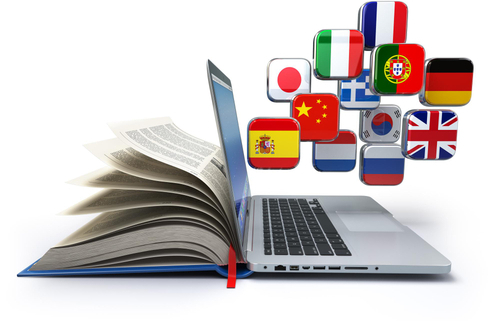Unpacking the Multi-faceted Meaning of Interpretation
First things first, what does ‘interpret’ mean? The word ‘interpret’ originated as a Latin term, ‘interpretari’, which means to explain, or, as is more pertinent in this context, to translate. Interpret is a verb, and if we’re looking for an interpretation definition, there is more than one:
- To explain the meaning of something.
- To understand something as having a particular meaning.
- To perform in a way that conveys one’s understanding of a creator’s ideas — as in dancing, for instance.
- To translate orally or into sign language the words of a person speaking a different language.
In other words, and for our purposes, to interpret is to explain or divulge the meaning of something, while presenting it in understandable terms. It can also be used to change what someone is saying into another language. When the interpretation definition is applied to translating languages, it can refer to the complexity and diversity inherent in language interpretation.
To unpack the multi-faceted meaning of interpretation, we need to look at the diverse elements which make up the complex field of document translation services:
The Complexity of Semantics: Because languages are abundant in meaning and a single word can have multiple interpretations based on context, the best interpreters have a keen understanding of nuance and can pick up on the most efficient way of conveying the intended message.
The Cultural Difference: A professional interpreter is aware that language has deep connections to accepted cultural and societal norms. An interpreter must be aware of these cultural nuances to provide an accurate and thoughtful interpretation, meaning cultural awareness is a must.
The Technical Details: The process of interpreting can be done in real-time (simultaneous interpreting) or with pauses (consecutive interpreting). Both of these methods require diverse approaches, skills and techniques.
The Structure of Languages: With their varied grammatical structures, syntax and idiomatic expressions, languages present interpreters with a special set of challenges which must be navigated when translating from one language to another.
The Expert Touch: When translating in specialist areas, such as chemical, legal, medical, scientific or technical, it is important for interpreters to know their way around specific terms and/or technical jargon which are specific to the sector concerned.
The Computer/Human Interface: When speaking about programming languages, interpretation refers to how certain languages are executed by a computer. In an interpreted language, the source code is not directly translated by the target machine, instead, the interpreter steps in and reads and executes the code. This process too is multi-faceted: parsing the code, error checking, and going through the stages line by line to execute commands.
So, it’s clear that whether we’re talking about human languages or programming languages, interpretation is indeed a multi-faceted process.
There are other complexities involved for translators to contend with when interpreting languages:
- One of the biggest challenges faced by interpreters is difficulty in hearing the spoken word. There are several things which might cause this: Malfunctioning audio equipment for one, or the speaker might simply be soft-spoken. If the speaker talks too quickly, the interpreter may lack sufficient time to comprehend and translate the sentences into another language.
- Differently defined language structures. As languages have their own sets of individual rules, the complexity and singularity of this construction has a direct effect on the translation’s challenges.
- Literal definitions of idiomatic phrases or expressions are likely to bring up a translation which is totally at odds with the intent at the source. Such phrases — which may sound most peculiar to the uninformed listener — require the attention of a skilled interpreter who is well-versed in such vernacular sayings and esoteric jargon.
- Compound words — which are formed by combining two or more words together — can be baffling to the uninitiated, because the exact meaning of the compound word may not align with the meaning of its component words.
Having outlined a few examples of the complications involved in interpreting languages, you can see that each translation project can present its own unique challenges. For the professional interpreter, skill, experience and cultural understanding are a must.
TW Languages is a multilingual translation, localisation and interpreting service provider specialist in technical and scientific translations in up to 250 languages. We are registered and based in the UK, and a full member of the ATC & EUATC. We manage large projects, focusing on innovation, quality and meeting customers’ deadlines. We are a friendly and agile company with three-pillar commitment: honesty, integrity, and transparency. Our goal is to provide the highest quality in each translation we produce within the agreed time schedules.
Learn more now about how TW Languages can meet your interpretation and translation needs.
Contact the team at our UK-based head office by calling +44 (0)161 826 8777.
You can also send an email to info@twlanguages.com
We are ready to help!


